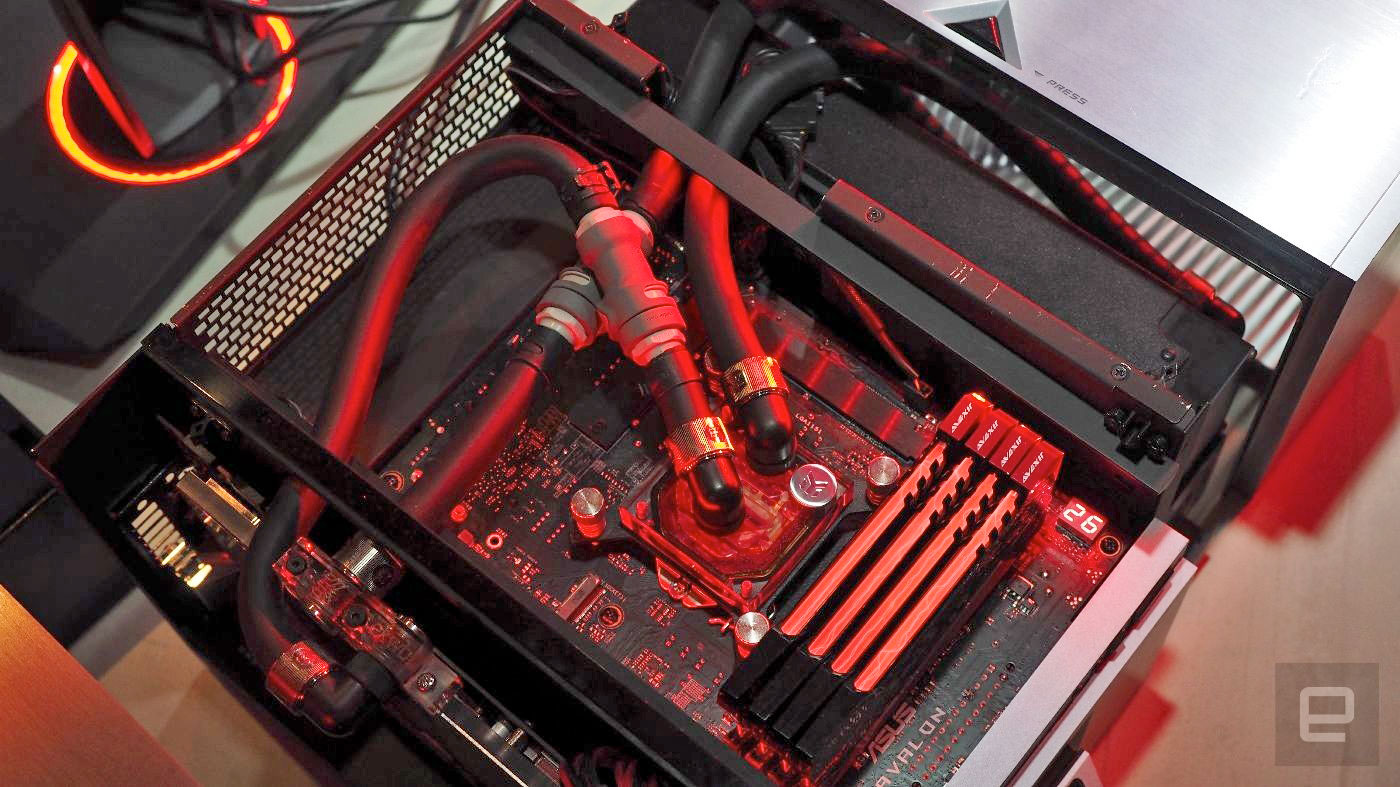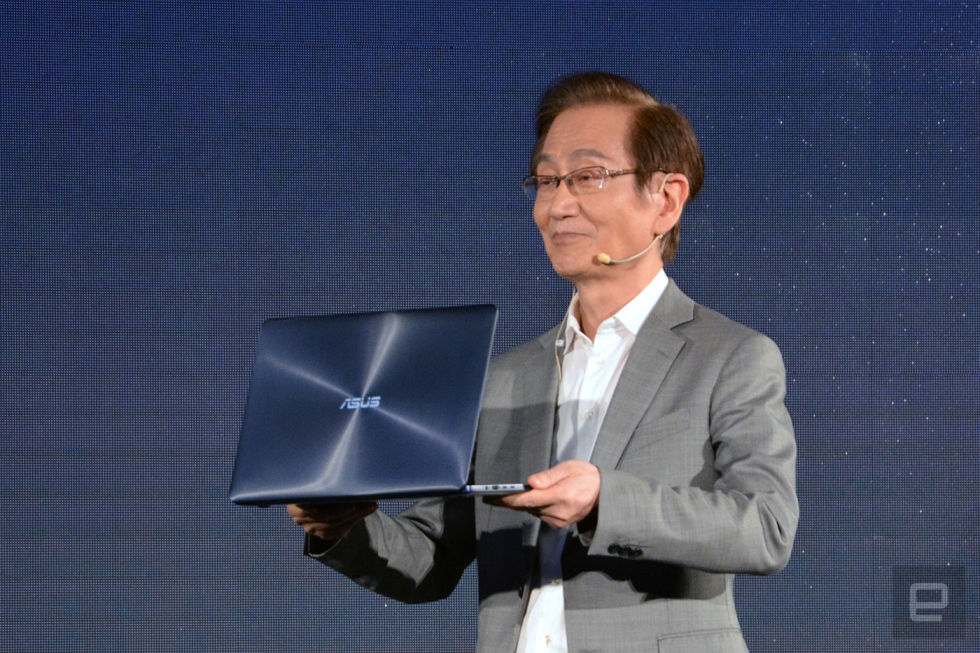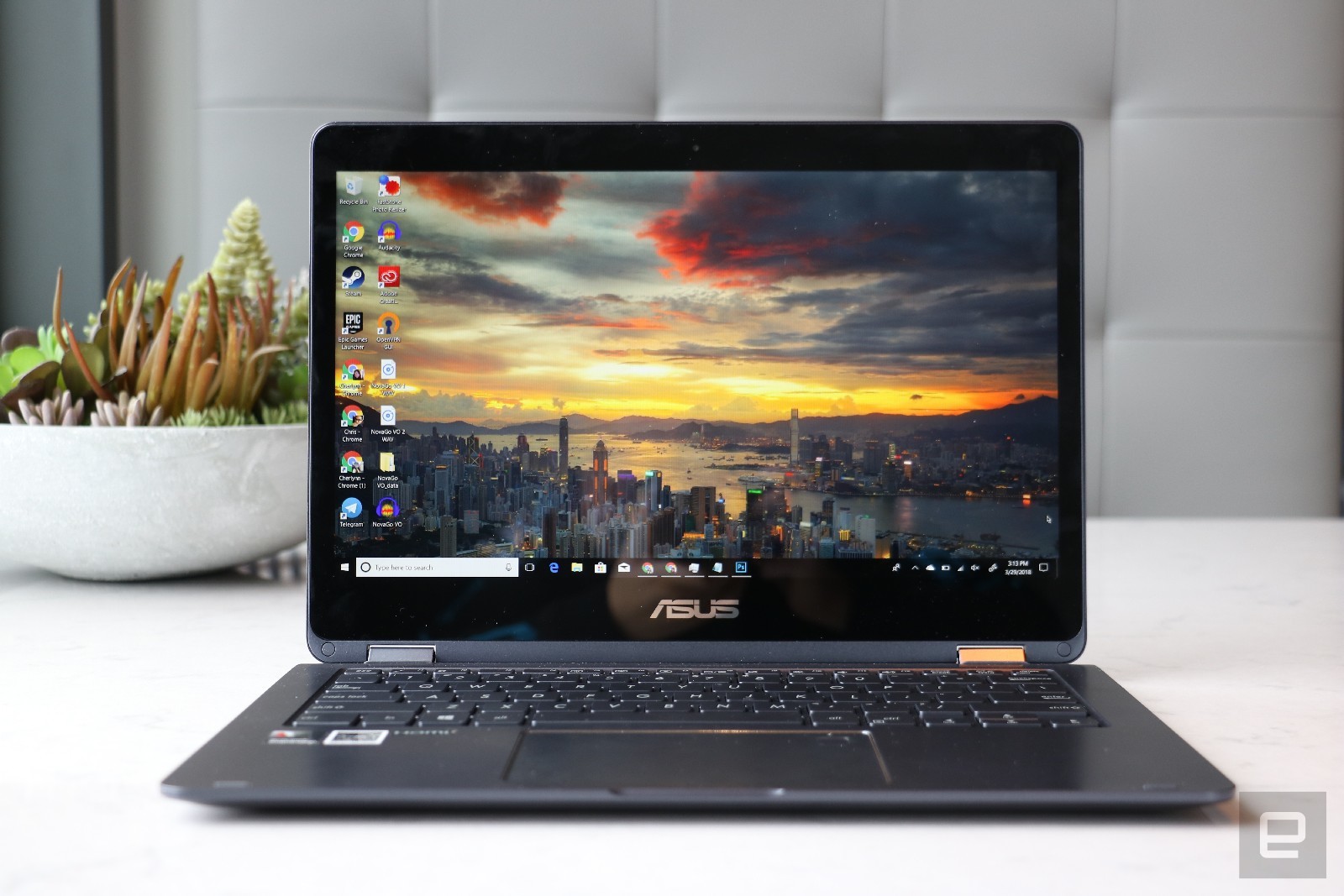 Computex marks the midpoint of the technology calendar, an oasis of new hardware in an otherwise barren summer. In the first week of June, Taipei plays host to PC makers and startups showing off what they think is the next big thing. Just before team Engadget sets off to sample everything the show has to offer, here's what we're expecting to see. ASUS 
ASUS dominates Computex, and it's likely that the company will be behind plenty of the most talked-about gadgets. The PC maker will, as custom, break its events in two: the first for its Republic of Gamers sub-brand, the latter for its own brand products. We know that ASUS is teasing a new laptop with the tagline "Unleash your creative power," with commercials featuring Wonder Woman star Gal Gadot. Context clues alone suggest it'll be a Pro-level device aimed at creative professionals. It's likely that we'll also see lighter, slimmer laptops and hybrids that continue the trend from last year. If there's any scope for more radical design, it would be nice to see ASUS repeating the feat it achieved at last year's show. The company's Blue Cave router used an air channel (through the middle of its case) to help cool its internals and separate its antennas. Our tired eyes would love to see some more innovative, eye-catching design in ASUS' products this year. In smartphones, the company recently showed off a low-end ZenFone, the Max Pro, which has been designed purely for the Indian market. At MWC before that, we saw the ZenFone 5 and 5Z, and those devices haven't received an entirely warm reception. That means there's certainly space for the company to wheel out a new handset during its keynote. After all, it was this time last year that ASUS let slip that the ZenFone AR would reach consumers between June and July. The last item on our wish list is something -- anything -- concerning wider availability of the Zenbo home robot. The cute little automaton is available in both Taiwan and China, but we've heard nothing concerning further sales. It would be lovely to see a date for when those of us in the wider world can have this little adorable machine scooting around our living rooms. Intel Now that Intel has begun shipping its 10-nanometer Cannon Lake processors, we're expecting to see plenty more devices take advantage of them. Intel says that the smaller chips are faster and more power-efficient than its predecessors, making them ideal for portable machines. So far, the only Cannon Lake machine you can buy is a low-end Lenovo IdeaPad, and Computex would be an ideal time to wheel out some more. (Although a report from SemiAccurate pours cold water on the thought that these chips are hugely better than what's currently available.) We're also hoping to see a little more from Intel's eye-catching enthusiast series of chips for gamers with silly money to burn. Last year it showed off an X-Series Core i9 that packed a staggering 18 CPU cores adding up to more than a teraflop of computing power. Unfortunately, that piece of gear was priced at $1,999, putting it well out of the reach of many folks. But a year in, hopefully Intel will throw the faithful a less expensive, similarly powerful bone for our VR rigs. Acer Acer, Taiwan's other big technology company (sorry, HTC), decided to get the jump on its similarly sounding rival last week. At a flashy event in New York, Acer showed off new gaming monitors, Alexa-equipped laptops, business chromebooks and gaming machines. We're not sure that anything will have been held back for Computex, but we'll keep an eye out anyway. Qualcomm and Microsoft 
Last year, Microsoft and Qualcomm teamed up to demonstrate Always Connected PCs, machines that use mobile hardware and modems for road warriors. Essentially, it's a full-fat version of Windows running on Qualcomm's smartphone chips, paired with an LTE modem for folks who want to always be online. Snapdragon 835's big selling point was gigabit LTE, meaning that you can pull down almost 2GBs of data in less than 30 seconds. The first machine to emerge from such a partnership was ASUS' NovaGo, which showed off the potential of such a system, and also its limitations. But that first-generation hardware was always going to have issues that would take time and money to iron out. So perhaps we'll see updated gear announced at the show that can prove, once and for all, that a connected laptop can be a worthwhile machine for getting work done in the most remote of areas. NVIDIA Computex is a huge show for the hardcore-gaming crowd, and last year it played host to the launch of Max-Q. NVIDIA has worked with manufacturers to build laptops that are thinner and more powerful than what's come before. One example: the ROG Zephyrus, which packed a GTX 1080 inside its chassis yet measured 16.9mm thick at its thinnest point. Since then, we've seen machines from MSI, Razer and Gigabyte sub-brand Aorus that have been enhanced by the technology. And a year in, we can expect to see more big names showing off devices that have been through NVIDIA's slimming-and-juicing program. NVIDIA's own press conference will probably focus on its mobile chips and possibly its strengths in AI. The company will, as mentioned, be pushing more of its high-end silicon into more laptops with its Max-Q platform. It may also want to address efforts to reduce the prices of its hardware, which have suffered thanks to the explosion in crypto-miners. AMD At CES, the company revealed the Radeon Vega Mobile GPU, a slice of graphics silicon designed to go toe-to-toe with NVIDIA's GTX 10 series. We already know that the Vega Mobile will pop up inside the second-generation Ryzen 3 mobile chip. What we don't know is when such hardware will be available, but hopefully we'll get the chance to play with it in Taipei. Dell Last year, Dell unveiled a new, VR-ready PC as well as its own Mixed Reality headset as part of the industry's push toward virtual reality. We haven't heard much about its plans for this year, and last month it showed off its new XPS 15 and Precision 5530 high-end workstation. Perhaps the company has decided that it's better off announcing hardware on its own calendar rather than keeping to someone else's schedule. Wrap-up The show will also host G.Skill's annual overclocking and system mod showcase in which professional overclockers push their silicon to the limit. We'll also keep our eyes open for the maddest case mods and hacked-together hardware we can find. Plus, we may try to sneak off and play some more games in HTC's local VR arcade, just for research purposes of course. And if you can't wait to find out what's coming, keep pointing your browser at Engadget over the next week. Click here to catch up on all the latest news from Computex 2018!
via Engadget RSS Feed https://ift.tt/2Lbh428 |
Comments
Post a Comment